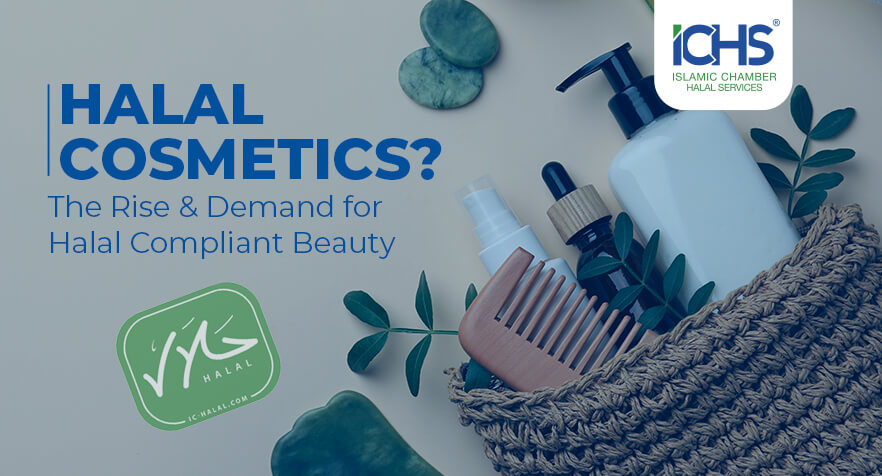Embracing Beauty! The Rise of Halal Cosmetics
In today’s beauty industry, consumers are increasingly seeking products that align with their values and beliefs – cruelty free, sustainably sourced, chemical-free… and the list is growing! For Muslim consumers, this includes the desire for cosmetics that adhere to halal principles. Halal cosmetics, which are formulated and produced in accordance with Islamic guidelines, have gained significant popularity in recent years. Let’s explore the world of halal cosmetics and their impact on the beauty landscape.
Halal Cosmetics: What does this even mean?
Halal, meaning “permissible” in Arabic, refers to products or practices that are permissible according to Islamic law. Halal cosmetics adhere to specific guidelines that ensure the ingredients and manufacturing processes meet the requirements set forth in Islamic dietary laws.
To qualify as halal, cosmetics should not contain ingredients that are haram, or forbidden, in Islam. This means producers of these products avoid impermissible substances such as alcohol, pork-derived ingredients, and any other components that go against Islamic principles. Additionally, halal cosmetics are produced in facilities that follow strict hygiene standards and do not engage in practices that compromise the integrity of the products.
Halal Cosmetics: More Than Just Ingredients
Halal cosmetics go beyond the exclusion of haram ingredients. They also emphasize ethical and sustainable practices. Many halal cosmetics brands actively promote cruelty-free formulations, ensuring that no animal testing is involved. They prioritize the use of natural and organic ingredients, avoiding harsh chemicals that may be harmful to both humans and the environment.
Halal cosmetics also often focus on providing products that are suitable for diverse skin types and sensitivities. This inclusivity ensures that individuals with specific needs, such as those with sensitive skin or allergies, can find suitable options within the halal cosmetics market.
Read More | is chocolate halal
Empowering Muslim Consumers with Halal-Compliant Products
The rise of halal cosmetics has empowered Muslim consumers by offering them a broader range of choices in the beauty aisle – there’s no one-size-fits-all anymore, nor are there the limited options from yesterday. Today, It’s the incredible variety available that allows individuals to express their personal style while adhering to their religious beliefs and values. Halal cosmetics cater to the diverse needs of Muslim consumers, including makeup, skincare, haircare, nail care, and personal care products, ensuring they can confidently and actively participate in the beauty industry without compromising their faith.
Additionally, halal cosmetics have a significant impact on the self-esteem and confidence of Muslim individuals. By providing products that align with their values, halal cosmetics recognize and celebrate the beauty diversity within the Muslim community and beyond, fostering a sense of inclusivity and representation.
It’s Not Just a Demanded by Muslims!
The demand for halal cosmetics extends beyond Muslim-majority countries. It has gained traction worldwide because of the values behind the making of Halal products, with consumers from various backgrounds embracing halal-certified products. This trend is attributed to the growing awareness and appreciation of ethical and sustainable beauty practices, as well as the increasing purchasing power of Muslim consumers globally.
As a result, many mainstream beauty brands have recognized the importance of catering to this market segment. They have introduced halal-certified product lines or adapted their existing offerings to meet the halal requirements. This expansion of halal cosmetics within the industry reflects the inclusivity and diversity that consumers seek in modern beauty standards.
Read More | Makkah Halal Forum 2025
Where is the Halal Cosmetics Industry Heading?
The future looks promising for Halal cosmetics! As consumers become more conscious of their choices, the demand for ethically produced and religiously compliant beauty products is likely to grow. This presents an opportunity for cosmetics companies to invest in research and development, innovation, and sustainable practices to meet the evolving needs of their customers.
Furthermore, the rise of e-commerce platforms and social media has made it easier for consumers to access and discover halal cosmetics, as well as learn more about what consumers seek, want, and need. It has allowed niche halal brands to reach a global audience and connect with consumers who value authenticity and integrity in their beauty routines.
In conclusion, halal cosmetics have emerged as a significant segment in the beauty industry, catering to the needs of Muslim consumers worldwide. With their commitment to halal standards, ethical practices, and inclusivity, halal cosmetics empower individuals to embrace beauty rituals that align with their faith and values. As the industry continues to evolve, halal cosmetics will undoubtedly play a more prominent role, shaping the future of beauty with its emphasis on authenticity, diversity, and sustainability.




